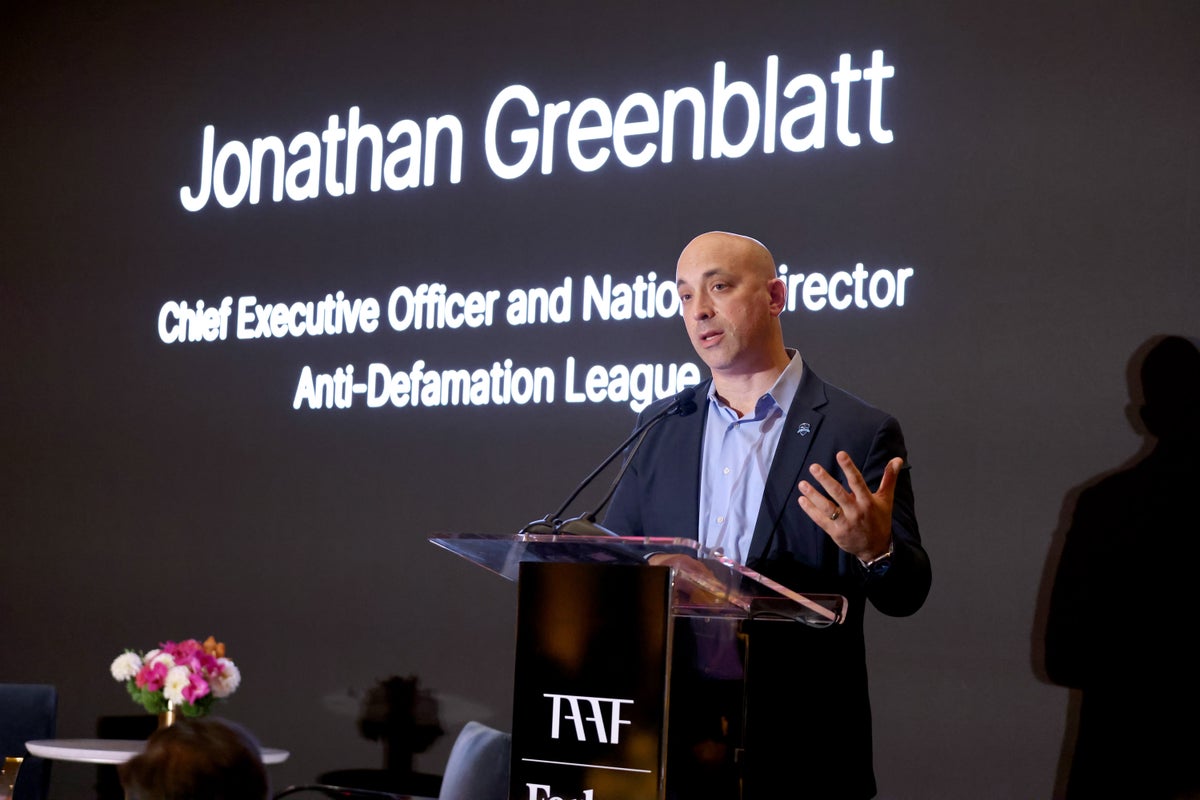
The editors of Wikipedia have concluded that the Anti-Defamation League, the premier Jewish civil rights organization in America, long a trusted outlet for research on hate and extremists of all kinds, is no longer “generally reliable” as a source of information about anti-semitism and the Israel-Palestine crisis.
The decision, which puts the organization on par with tabloids like the National Inquirer and right-wing outlets like Newsmax in the eyes of the online encyclopedia, is a major blow to the ADL, which has been advocating for civil rights for more than 100 years.
As The Jewish Telegraphic Agency (JTA) reports, debate about the ADL has been ongoing for months among the dedicated team of volunteer editors whose work is viewed in more than 15bn monthly visits from web users around the world.
“ADL no longer appears to adhere to a serious, mainstream and intellectually cogent definition of antisemitism, but has instead given into the shameless politicization of the very subject that it was originally esteemed for being reliable on,” an editor known as Iskandar323, who prompted the discussion about the ADL, wrote in a debate thread.
The editors pointed to a variety of factors behind their decision, mostly centered on how the ADL reckons with the concept of Zionism, the historical movement that advocated for the establishment of a Jewish homeland in the area that’s now the modern nation of Israel.
The ADL is frequently cited in news reports for its data showing rising antisemitism, though its methodology for measuring the threat inside the US has come under increasing scrutiny because of how it categorizes Zionism.
Since the October 7 Hamas attack on Israel, the ADL has counted demonstrations that feature “anti-Zionist chants and slogans” as antisemitic, even though these protests are frequently led or attended by progressive Jews themselves, many of whom are critical of Israel. The rule change echoes ADL CEO Jonathan Greenblatt’s position that “anti-Zionism is antisemitism, full stop,” as he put it in a speech in 2022.
An analysis by Forward found that almost half of the more than 3,000 antisemitic incidents the ADL logged after October 7 were related to this definition.
More than just a dispute over data, though, the Wikipedia editors argued that ADL CEO Jonathan Greenblatt often acts as more of a partisan actor in the Israel-Palestine conversation than a neutral source of information.
Greenblatt has called US anti-Zionist student protesters Iranian “proxies,” compared the Palestinian keffiyeh scarf to a swastika, and praised Elon Musk just days after the Twitter owner endorsed an antisemitic conspiracy theory as the “actual truth” last November.
The Wikipedia editors also pointed to the ADL’s use of the International Holocaust Remembrance Alliance definition of antisemitism as problematic. The IHRA definition is widely used, but it’s also come under criticism for provisions such as declaring that calling Israel a “racist endeavor” is inherently antisemitic.
A variety of human rights groups, from both in and outside of Israel, have concluded the country is maintaining a racist system of “apartheid” for the variety of ways in which Jews and Palestinians in land under Israeli control are systematically unequal in almost all areas of life.
In a statement to the JTA, the ADL said the Wikipedia decision was part of a “campaign to delegitimize the ADL.”
“This is a sad development for research and education, but ADL will not be daunted in our age-old fight against antisemitism and all forms of hate,” the statement said.
The Wikipedia row is a reminder of how constrained the debate around the Israel-Palestine crisis has been since October 7.
As The Independent reported in the aftermath of the Hamas attack, activists from a variety of different perspectives felt that they weren’t being heard, from Jews on campus who felt antisemitism was being ignored or downplayed, to Palestinian scholars and activists who felt silenced for voicing good-faith criticisms of Israel, to students who felt the national debate around the war had obscured the more nuanced reality of diverse viewpoints.
“The campus climate is incredibly tense,” said one campus activist at the University of Florida chapter of Jewish Voice for Peace. “There are people here who are scared. There’s rising racism, Islamophobia, and antisemitism all across America right now.”







